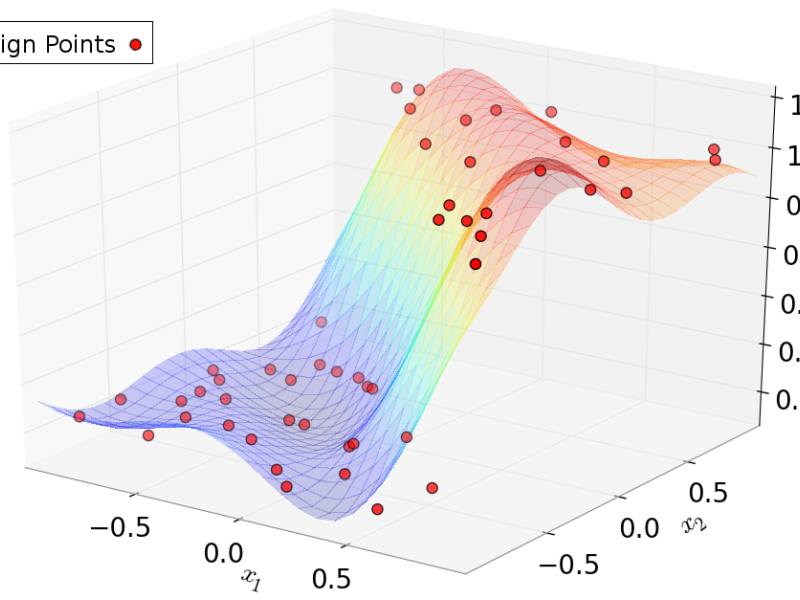Design of Experiments (DoE) is a field at the interface between mathematical optimization and statistics, which aims at optimally selecting experimental conditions before actually running the experiment. In traditional DoE, the goal of the experiment is to infer an unknown parameter β, and the experimental conditions must be chosen so as to estimate β with the best possible accuracy. Modern techniques of Design of Computer Experiments support the economic exploration of higher-dimensional parameter (or design) spaces - and are of particular interest when each simulation run is costly.
This is the case for many HPC applications, in particular for parameter studies in which for each single point in the parameter space requires a time-intensive simulation. Examples can be found in material design, e.g. when systematically searching for materials with certain macroscopic properties or in structure mechanics, geoscience, medicine and climate research. A common challenge is that a single simulation can take up to several days of computational time on an HCP system, causing very high operating costs. DoE techniques have the potential to reduce these costs, by optimally selecting the parameters of each simulation run.
The aim in this project is to develop a web-based DoE tool and a library to be linked to the simulation code, specifically designed for integration into the HPC workflow. Research aims are the development specific DoE strategies for characterization of geometric-topological features (e.g. sublevel sets) of the computed function and consideration of design parameters, like the discretization accuracy. Additionally, novel visualization and interaction methods shall be developed for interactive analysis of sparsely sampled functions defined on higher-dimensional parameter spaces.
